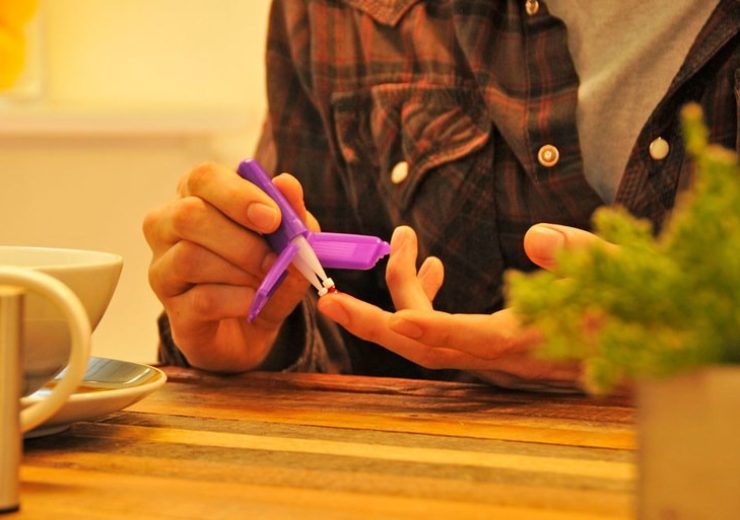At-home blood collection option offered to healthy volunteers for Coronavirus immunity studies

At-home blood collection from Neoteryx uses VAMS technology. (Credit: Neoteryx.)
How many adults in the U.S. already have antibodies to the novel coronavirus? To answer this question, the National Institutes of Health (NIH) and other research organizations are using the Mitra® microsampling device from Neoteryx, a biotechnology company in Southern California, to conduct a “SeroSurvey” of healthy Americans. NIH research teams are offering the device to 10,000 volunteers across the country with no known history of a COVID-19 infection. Researchers at Wake Forest Baptist Health will also use the at-home blood collection kits from Neoteryx to analyze volunteers’ blood samples in 40 counties of North Carolina. Tests of the blood samples will determine who has developed antibodies to the novel coronavirus. The presence of antibodies in the blood indicates that a person was previously infected with SARS-CoV-2 and recovered. These blood tests are unlike cotton swab saliva tests, which only identify if a person is actively infected with the virus.
NIH and Wake Forest are using the Mitra microsampler from Neoteryx because it is a simple yet precise blood collection device with a finger-prick tool that can be used by anyone, anywhere. Volunteers can participate in the studies while remaining safely isolated at home during the pandemic. For the NIH study, people can enroll via phone, request the option to use an at-home Mitra blood collection kit, and return their blood samples via regular mail for analysis in the NIH lab. People with a laboratory-confirmed history of COVID-19 or current symptoms consistent with COVID-19 are not be eligible for these studies.
The NIH will use data from blood samples submitted by healthy volunteers to determine the number of undetected cases of COVID-19 in the U.S., and gain a better understanding of silent transmission of the virus and herd immunity, among other issues. Researchers conducting the “SeroSurvey” study include those from the NIAID, NIBIB, NCATS, and NCI—all part of the NIH. Wake Forest will use data from their representative blood sample study to get a clearer picture of coronavirus immunity within North Carolina. All study findings will help inform public health decisions moving forward.
“Researchers have considerable experience using these at-home blood collection kits to track the spread of other infectious diseases like influenza, and this method is safe, effective and easy-to-use,” said Kaitlyn Sadtler, PhD, in an announcement from the NIH. Dr. Sadtler, who is the study lead for laboratory testing and chief of NIBIB’s Section for Immuno-engineering, added, “With a small finger-prick, volunteers can help scientists fight COVID-19 from their homes.”
“Neoteryx is honored to be part of the effort to understand and fight COVID-19 by providing our Mitra blood collection devices to top research and healthcare organizations like the National Institutes of Health, Wake Forest, and others,” said Fasha Mahjoor, CEO of Neoteryx. “Our Mitra microsampling devices are designed for remote specimen collection, and perfectly suited to coronavirus studies like these, which provide volunteers a safe, simple way to collect their own blood sample at home and mail it in.”
Mahjoor reported that scientists value the reliable precision of Mitra, which utilizes patented, volumetric absorptive microsampling (VAMS®) technology to collect small, volumetrically accurate specimens of blood and other bio-fluids. The VAMS technology is an alternative to traditional venipuncture blood draws. VAMS is an advance over dried blood spot (DBS) card-based devices used in science, which don’t consistently deliver a reliable blood sample for dependable analysis nor easily integrate in typical lab automation workflows. The absorbent tips on the Mitra device collect and deliver the precise volume needed for analysis. More than 100 journal publications cite the successful use of Mitra with VAMS technology for a range of applications, including clinical trials that monitor remote participants, medical studies that examine drug efficacy in transplant patients, pediatric care and monitoring, lab studies that examine pathogens, and more.
Source: Company Press Release
